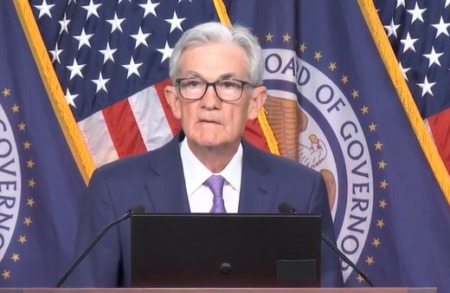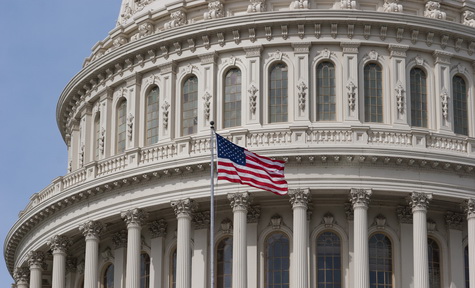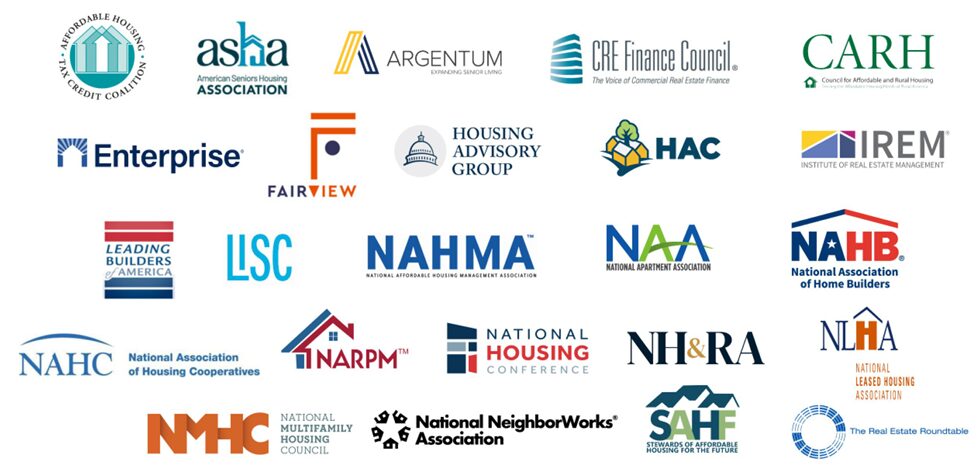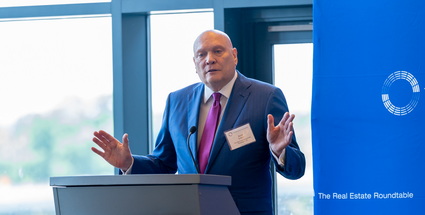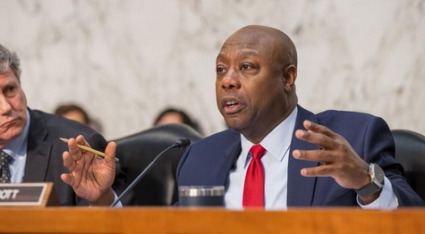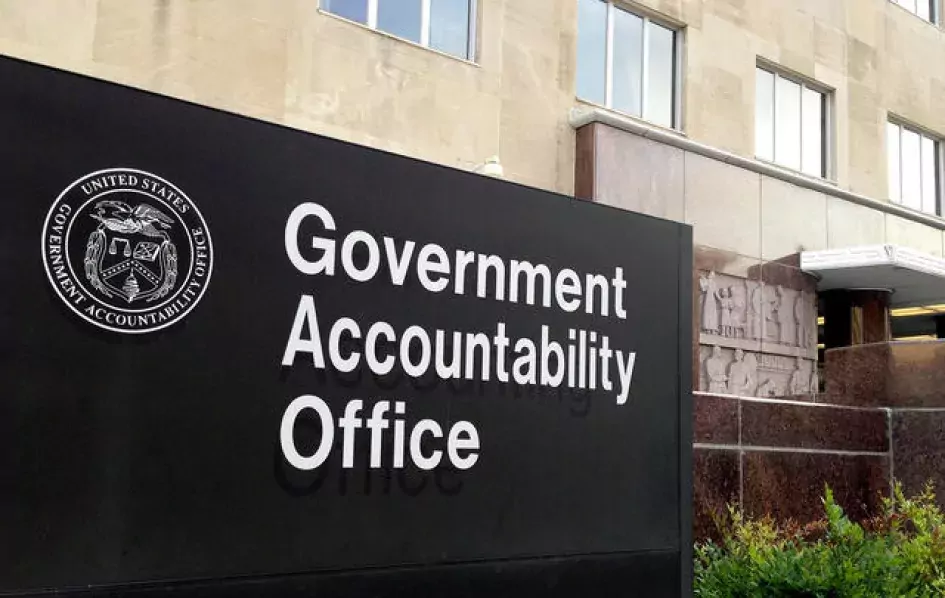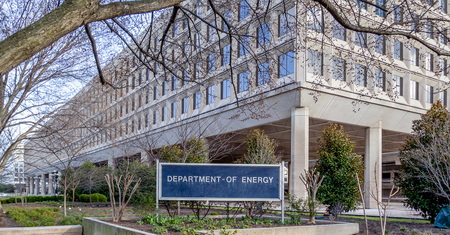
The Real Estate Roundtable’s 2024 Annual Meeting this week included discussions with key public officials and industry leaders on issues affecting commercial real estate, including market conditions, the upcoming elections, affordable housing solutions, tax policy, sustainability issues, rebuilding cities, and evolving security threats.
Roundtable Leadership
- During the meeting, Roundtable Chair Emeritus Robert Taubman (Chairman, President & CEO, Taubman Centers, Inc.) presented outgoing Chair John Fish (Chairman & CEO, SUFFOLK) with a gift from The Roundtable Board of Directors and membership, for his outstanding leadership and successful time as Chair.
- In his outgoing speech as now-Immediate Past Chair, Fish thanked Jeffrey DeBoer, The Roundtable Board of Directors, membership, and staff for their hard work, and reiterated a key lesson from his time as Chair: “What’s good for America is good for our business.”
- Kathleen McCarthy (Global Co-Head of Blackstone Real Estate) will begin her three-year term as Roundtable Chair on July 1, 2024.
Meeting Speakers

- (L-R): Kenneth T. Rosen (Chairman of the Fisher Center for Real Estate and Urban Economics at the Haas School of Business at the University of California, Berkeley; Chairman, Rosen Consulting Group) presented and led a panel discussion on the economy and market conditions with Scott Rechler (Chairman & CEO, RXR), Bryan McDonnell (Managing Director, Chair of Global Debt & Agriculture, PGIM Real Estate), and Andrew P. Power (President & CEO, Digital Realty).

- The Honorable Elliot Doomes (Commissioner, Public Buildings Service, U.S. General Services Administration) discussed public-private partnership opportunities and sustainable building practices.
- “We urge the Public Buildings Service to accelerate their process to catalogue and sell to the private sector underutilized federal buildings. The private sector can convert those buildings to much needed housing, reduce unnecessary emissions, and help revitalize communities still struggling to recover from the pandemic,” said Roundtable President & CEO Jeffrey DeBoer.
- Dr. Frank Luntz (Founder and President, FIL Inc.)
- Bruce J. Katz (Director, Nowak Metro Finance Lab, Drexel University, former Inaugural Centennial Scholar and Vice President of the Brookings Institution)
Policy Advisory Committee Meetings
Joint Real Estate Capital Policy Advisory Committee (RECPAC) and Research Committee
- During a joint meeting, Research Co-Chair Spencer Levy (Global Chief Client Officer & Senior Economic Advisor, CBRE) and Darin Mellot (CBRE) briefed members on current real estate market conditions. RECPAC Co-Chair Michael Lowe (Co-CEO, Lowe) led a discussion about real estate credit and capital markets with: Kathleen S. Briscoe (Dermody Properties); Christina Chiu (Empire State Realty Trust); John Kessler (Mitsui Fudosan America); and Rex Rudy (U.S. Bank). Roundtable Senior Vice President Chip Rodgers moderated a discussion with Terry Haines (Pangea Policy) and Alex Sternhell (Sternhell Group) on key policy issues affecting the industry. (Agenda & Speakers)
Tax Policy Advisory Committee (TPAC)
- TPAC Vice Chair David Friedline (Partner, Deloitte Tax LLP) led panels on tax legislation at the forefront of policy debates in Washington, including the Revitalizing Downtowns Act 2.0, the Foreign Investment in Real Property Tax Act (FIRPTA), partnerships, and pass-throughs. (Agenda & Speakers)
Sustainability Policy Advisory Committee (SPAC)
- SPAC Chair Anthony E. Malkin (Chairman and CEO, Empire State Realty Trust, Inc.) and Vice Chair Ben Myers (Vice President, Sustainability, BXP) led discussions on the recently announced national definition of a Zero Emissions Building (ZEB), the SEC’s climate risk reporting rule, US-EPA ENERGY STAR, and NextGen. (Agenda & Speakers)
Homeland Security Task Force (HSTF)
- Co-Chairs Amanda S. Mason (Executive Director, Global Intelligence, Related Companies) and Keith Wallace (VP, Global Safety & Security, Marriott International) led a series of discussions on a number of key areas of concerns for the commercial facilities sector. Dr. Todd C. Helmus (Senior Behavioral Scientist, RAND) discussed issues related to the 2024 U.S. election; Dr. Michael Doran (Senior Fellow and Director, Center for Peace and Security in the Middle East at the Hudson Institute) discussed risks posed by Iran; and FBI special agent Matthew Drummond briefed the Task Force on the current threat picture. (Agenda & Speakers)
Next on The Roundtable’s FY 2025 meeting calendar is the Fall Meeting on October 8-9. The Fall Meeting is restricted to Roundtable-level members only.
